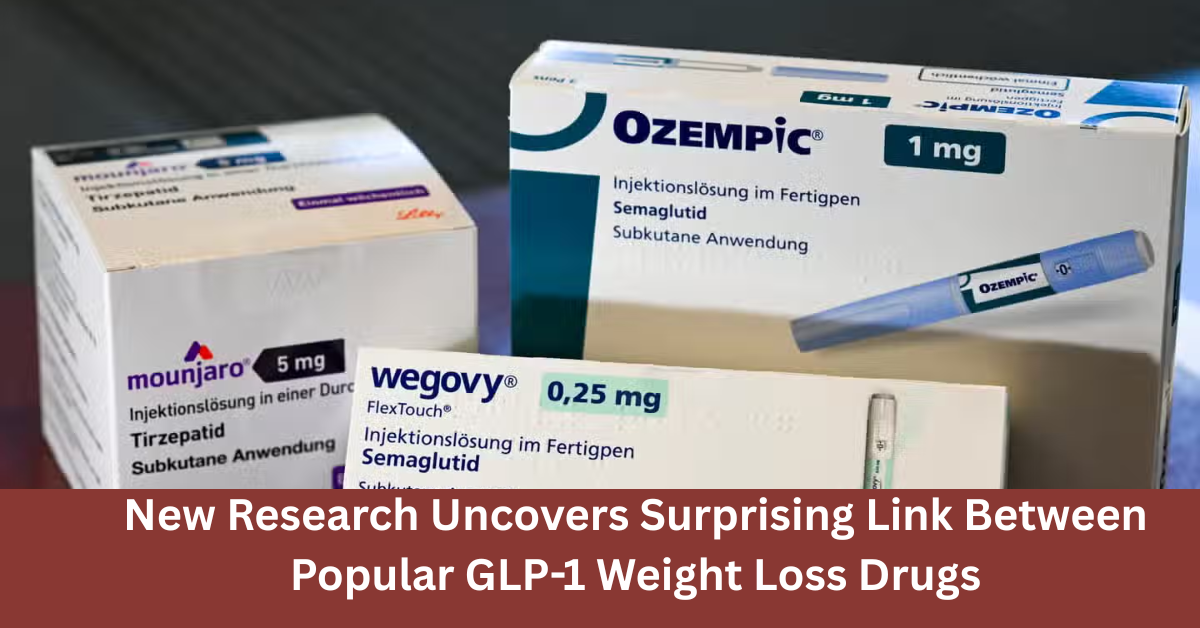The popularity of GLP-1 weight loss drugs has soared recently as more people turn to them for effective weight management. These medications have been praised for their ability to suppress appetite and promote fat loss without requiring drastic lifestyle changes. However, a recent study has shed light on a potential side effect that could have serious implications during hot weather conditions.
As temperatures rise, concerns about dehydration become increasingly important, and the new findings suggest that individuals taking GLP-1 drugs may be more vulnerable than previously thought. Understanding this connection is crucial for users and healthcare providers alike to stay safe while continuing weight loss journeys.
Understanding GLP-1 Weight Loss Drugs and Their Mechanism
GLP-1 (glucagon-like peptide-1) receptor agonists are a class of medications originally designed to treat type 2 diabetes. They work by mimicking the GLP-1 hormone, which helps regulate blood sugar levels by increasing insulin secretion and slowing gastric emptying. These effects contribute to reduced hunger and calorie intake, supporting weight loss.
Common GLP-1 drugs include semaglutide and liraglutide, both of which have gained FDA approval for obesity treatment. Their ability to promote satiety and control blood glucose has made them a go-to option for many trying to lose weight effectively without intense dieting.
How Heat Affects the Human Body and Hydration Needs
When exposed to high temperatures, the human body naturally increases sweat production to cool down. This leads to a significant loss of water and electrolytes, making hydration critical during hot weather. Without proper fluid replenishment, individuals risk dehydration, which can cause symptoms ranging from mild dizziness to life-threatening heat stroke.
Maintaining adequate hydration is especially important for those engaged in outdoor activities or living in regions with consistently warm climates. Dehydration can impair physical performance, cognitive function, and overall health, necessitating proactive water intake strategies.
New Study Overview: Connecting GLP-1 Drugs with Dehydration Risk
A recent study involving participants using GLP-1 weight loss medications revealed an unexpected trend: users experienced higher rates of dehydration symptoms during hot weather compared to non-users. Researchers monitored hydration markers, body temperature, and fluid intake to understand this correlation better.
Findings indicated that GLP-1 drugs might influence the body’s natural thirst response and fluid retention mechanisms, making users less aware of their hydration needs. This suppression of thirst can inadvertently increase the risk of dehydration, especially during prolonged heat exposure.
Key Findings from the Research Study
| Aspect | GLP-1 Drug Users | Non-Users |
|---|---|---|
| Reported Thirst Levels | Lower | Normal |
| Hydration Status (Urine Color Analysis) | Concentrated (indicating dehydration) | Clear to Light Yellow (adequate hydration) |
| Incidence of Dehydration Symptoms | Higher | Lower |
| Fluid Consumption | Reduced | Typical or Increased |
These results highlight the importance of monitoring hydration proactively for those taking GLP-1 medications, especially in warm environments.
Why Do GLP-1 Drugs Impact Hydration Levels?
GLP-1 receptor agonists can slow gastric emptying and cause gastrointestinal side effects such as nausea and reduced appetite, which might suppress the natural urge to drink fluids. Additionally, these drugs may alter neurohormonal signals related to thirst regulation, dampening the instinctive need to hydrate.
This altered thirst perception means that users might not feel thirsty even when their body is running low on fluids, increasing the risk of dehydration without conscious effort to drink water regularly.
Symptoms of Dehydration to Watch for While on GLP-1 Drugs
Dehydration symptoms can vary from mild to severe. Users of GLP-1 medications should be vigilant for signs such as persistent dry mouth, headache, dizziness, muscle cramps, and dark-colored urine. Fatigue and confusion may indicate advanced dehydration requiring immediate medical attention.
Recognizing these symptoms early is critical for preventing heat-related illnesses and ensuring safe use of weight loss medications during warmer months.
Practical Tips to Stay Hydrated When Using GLP-1 Medications
To counter the risk of dehydration, here are practical strategies that GLP-1 weight loss drug users can adopt:
- Set regular reminders to drink water throughout the day, even when not feeling thirsty.
- Prefer hydrating foods like watermelon, cucumbers, and oranges.
- Avoid caffeine and alcohol consumption, as they can contribute to fluid loss.
- Wear lightweight, breathable clothing during hot weather to reduce excessive sweating.
- Limit outdoor activities during peak heat hours to minimize heat exposure.
- Monitor urine color for hydration assessment—aim for light yellow.
- Discuss hydration strategies with healthcare providers for personalized advice.
Who Should Be Extra Cautious When Taking GLP-1 Drugs?
Certain groups are at higher risk of dehydration when combining GLP-1 medications with heat exposure. These include older adults, individuals with kidney or heart conditions, and those taking diuretics or other medications that impact fluid balance.
Pregnant or breastfeeding women using GLP-1 weight loss drugs should also be cautious and prioritize consultation with healthcare professionals to ensure hydration safety.
How Healthcare Providers Can Help Manage This Risk
Physicians prescribing GLP-1 weight loss drugs should educate patients about the dehydration risk during hot weather. Routine assessments of hydration status, counsel on fluid intake, and guidance on recognizing dehydration symptoms are essential components of care.
Incorporating hydration monitoring into follow-up visits and encouraging transparency about any side effects can improve outcomes and prevent complications.
Conclusion: Balancing Weight Loss and Hydration for Safe GLP-1 Drug Use
While GLP-1 weight loss drugs represent a breakthrough in obesity management, emerging research reminds users to be vigilant about potential dehydration risks, especially in hot climates. Understanding how these medications impact thirst and fluid balance can empower users to take preventive actions.
By adopting mindful hydration habits, monitoring bodily signals, and consulting healthcare professionals when needed, individuals can safely enjoy the benefits of GLP-1 drugs without compromising their well-being during heat exposure.




